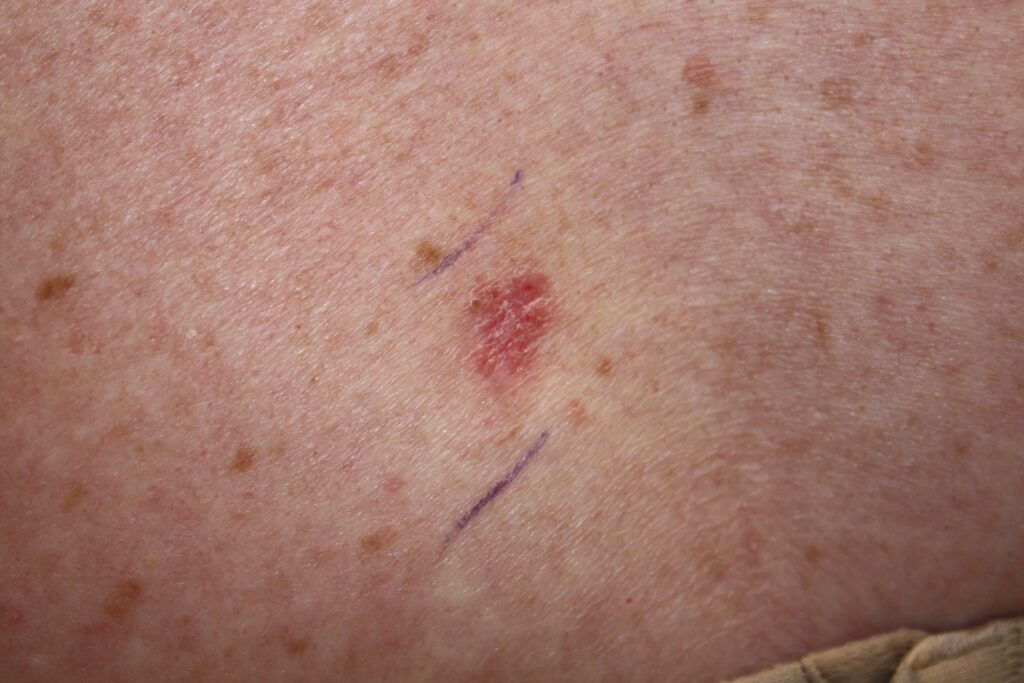Basal Cell Carcinoma (BCC)

Overview
Basal cell carcinoma is the most common type of skin cancer, originating in the basal cells located in the bottom layer of the epidermis. It is generally slow-growing and rarely metastasizes, but it can cause local tissue destruction if untreated.
Symptoms
- Pearly or waxy bump on the skin
- Flat, flesh-colored or brown scar-like lesion
- Bleeding or scabbing sore that heals and returns
- Lesions often occur on sun-exposed areas (face, ears, neck)
Causes & Risk Factors
- Chronic sun exposure or UV radiation (e.g., tanning beds)
- Fair skin, light eyes, and hair
- Older age
- History of frequent sunburns
- Immunosuppression
- Personal or family history of skin cancer
Diagnosis
- Clinical examination and dermoscopy
- Skin biopsy to confirm histological type
- Rarely, imaging is used if deep invasion is suspected
Treatment Options
- Surgical excision (standard treatment)
- Mohs micrographic surgery (for high-risk or facial lesions)
- Topical therapies (imiquimod, 5-FU for superficial BCC)
- Cryotherapy (for small lesions)
- Radiation therapy (for inoperable cases)
- Hedgehog pathway inhibitors (for advanced or metastatic cases)
Prognosis
- Excellent with early detection and treatment
- Recurrence possible, especially in high-risk areas
- Metastasis is extremely rare
Living with this Cancer Type
- Cosmetic management of scars
- Regular skin checks for recurrence or new lesions
- Sun protection and skin surveillance
- Education about warning signs
Prevention & Screening
- Daily use of sunscreen (SPF 30 or higher)
- Avoid peak UV exposure and tanning beds
- Regular dermatological exams for at-risk individuals
- Self-skin checks for new or changing lesions
FAQs
Q: Is BCC dangerous?
A: It rarely spreads but can damage nearby tissue if untreated.
Q: Will I get more if I’ve had one?
A: Yes, past BCC increases risk of developing additional skin cancers.
Q: Can it be prevented?
A: Yes, with proper sun protection and regular skin exams.
Resources
- Skin Cancer Foundation
- American Academy of Dermatology
- ClinicalTrials.gov
Understand Precision Testing
Learn how liquid biopsy and chemo sensitivity testing can personalize your treatment plan.
Make Informed Decisions
Gain knowledge to actively participate in treatment discussions with your healthcare team.
Improve Treatment Outcomes
Discover how precision medicine and metabolic therapies can enhance treatment effectiveness.
Start Your Educational Journey Today
Empower yourself with knowledge about precision metabolic oncology and take an active role in your cancer care journey.
Need More Information?
Our team of oncology experts is here to help you understand your diagnosis and treatment options.
